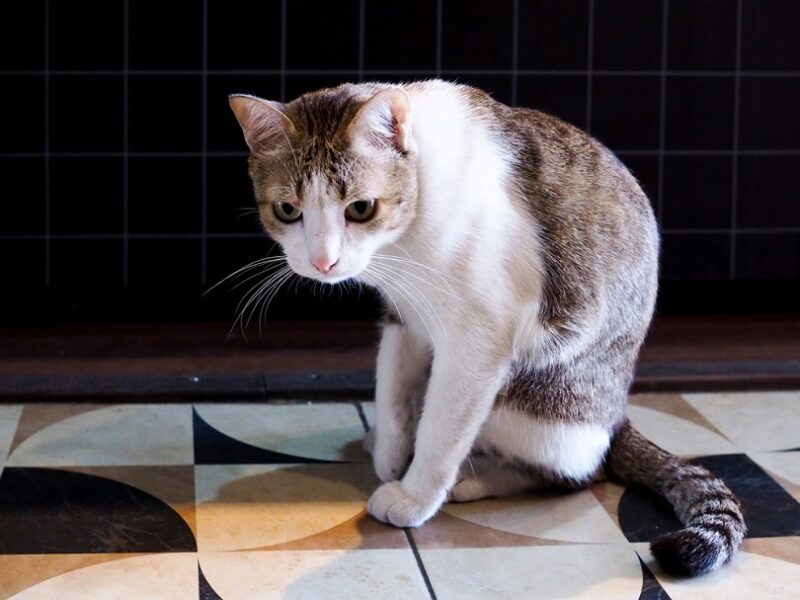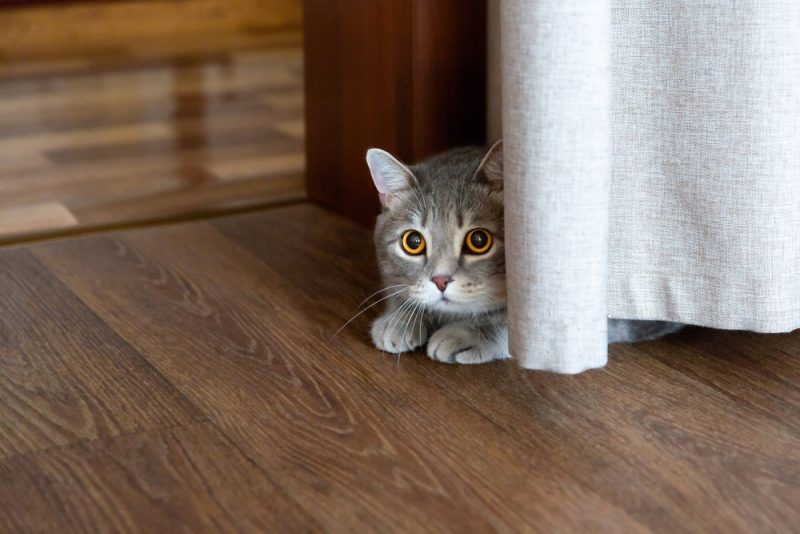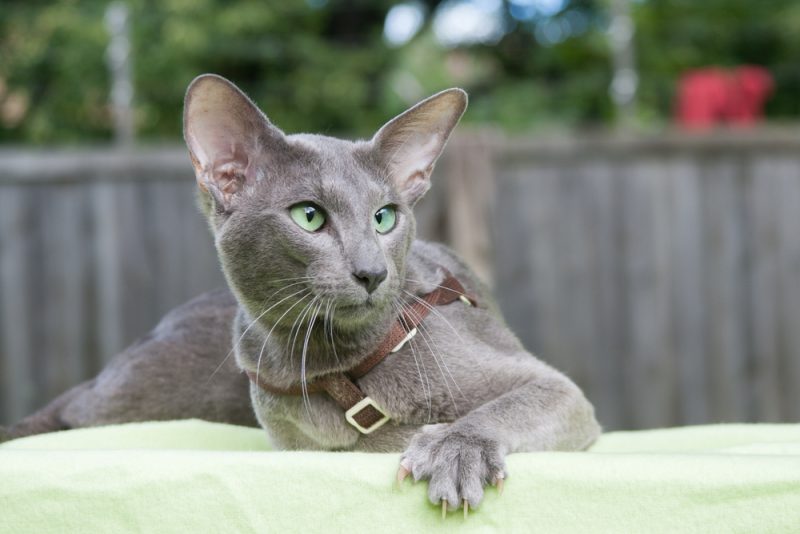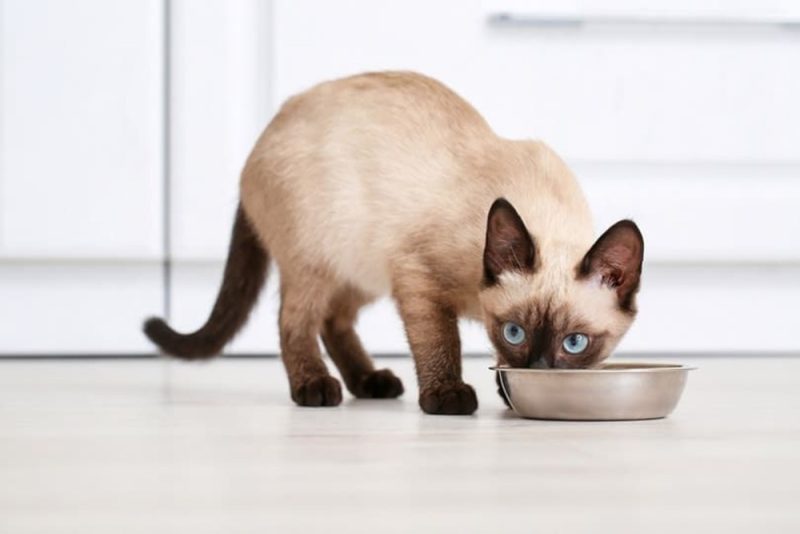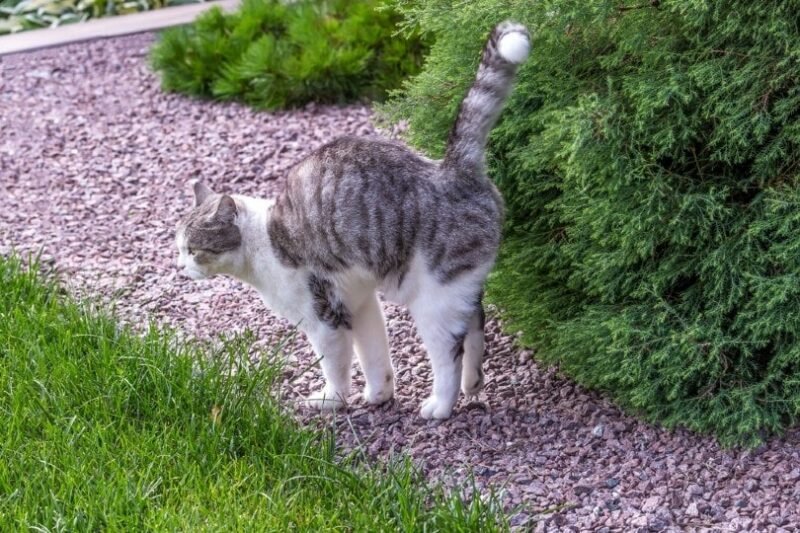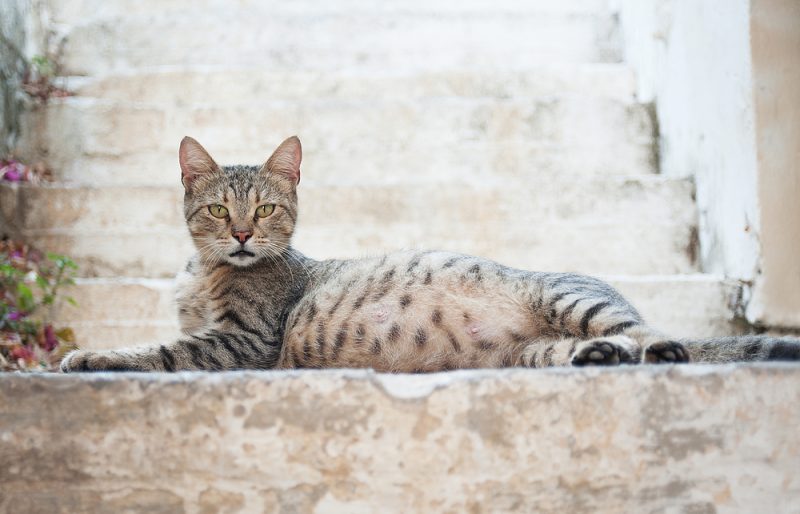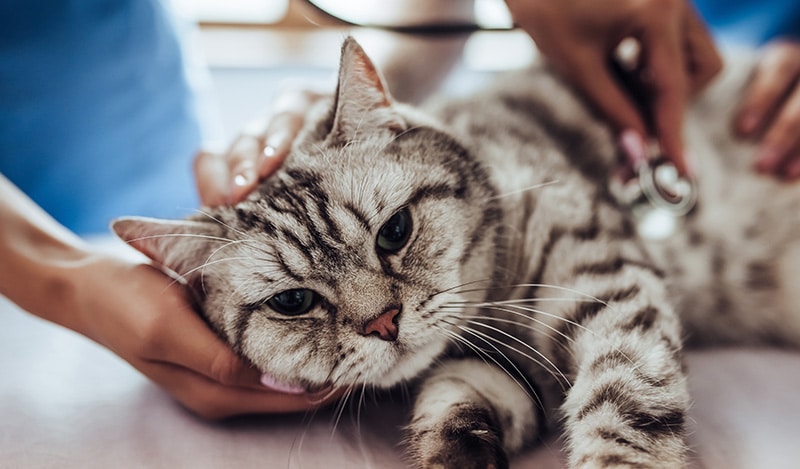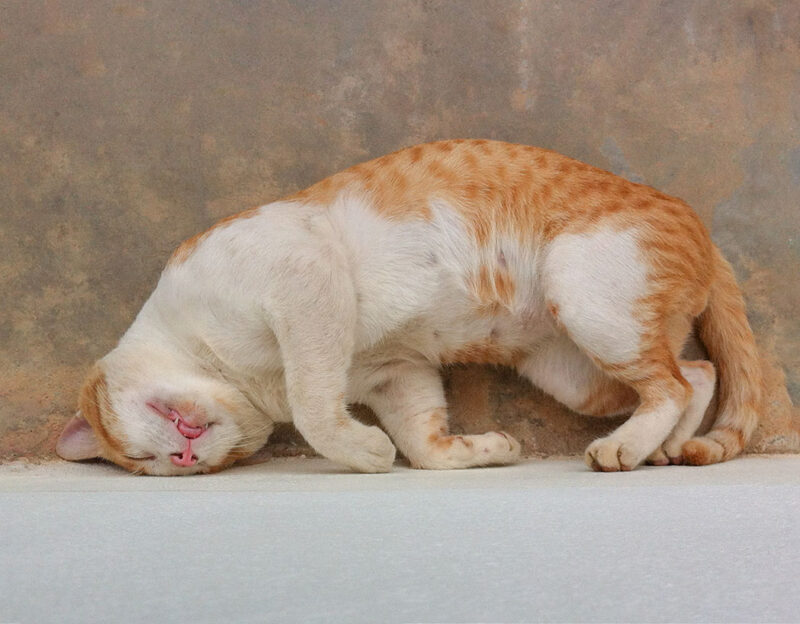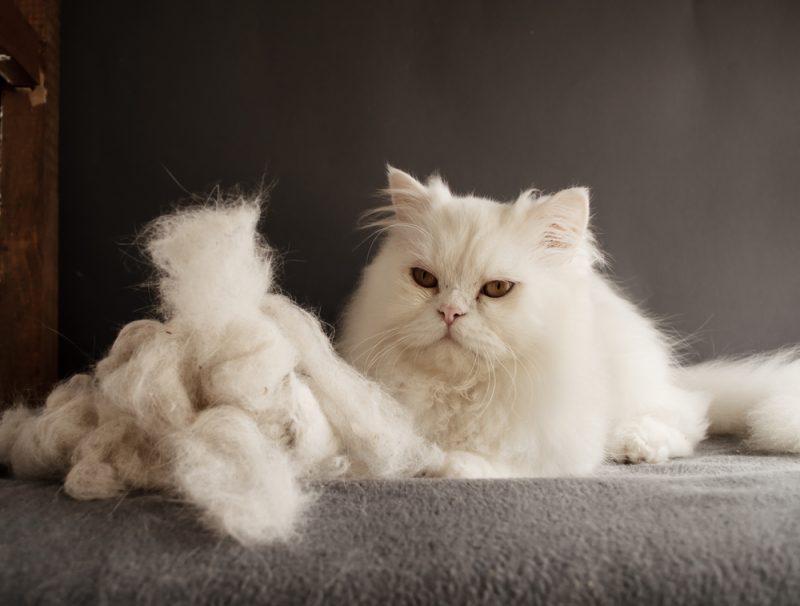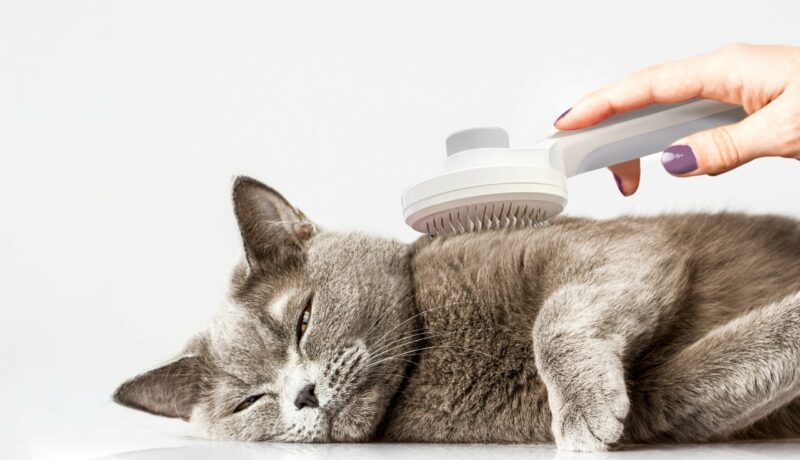In this article
Feline leukemia, or FeLV, is a virus that is the second leading cause of death in cats. It’s a serious condition that must be dealt with throughout an infected cat’s lifetime. Luckily, a vaccine that prevents cats from getting it is available, but unfortunately, it is not effective in 100% of cats, so infection is still a risk. That’s why infected cats should be separated. It’s up to you, the infected cat’s owner, whether you want to risk putting other cats at risk of contracting the virus. In short, it’s not recommended.
However, there are many nuances that go into this question. If one cat in your household suddenly contracts it, what should you do with the rest? Or maybe you are looking into adopting a cat with feline leukemia and providing them with a loving home. Whatever your situation, we will provide you with the information you need to help you make the best decision.

How Contagious Is Feline Leukemia?
Feline leukemia is contagious and readily spread among cats in casual close contact, though it does not live very long outside of a cat’s body. It is spread primarily through a cat’s saliva and blood. It’s also spread through nasal secretions, urine, feces, and an infected female cat’s milk. In fact, the feline leukemia virus is highly contagious in kittens.
Although it is contagious among cats, the virus is exclusive to the species. No other animal or human can contract it. Usually, cats that contract feline leukemia get it from fighting or grooming with another cat. The virus is most commonly transmitted through a cat bite.
Because cats get the virus from close contact with infected cats, indoor cats that are the only cats in the home are the least likely to get feline leukemia. Outdoor cats that spend time with many other feline friends or cats that spend a lot of time at a boarding facility are more likely to contract the virus.
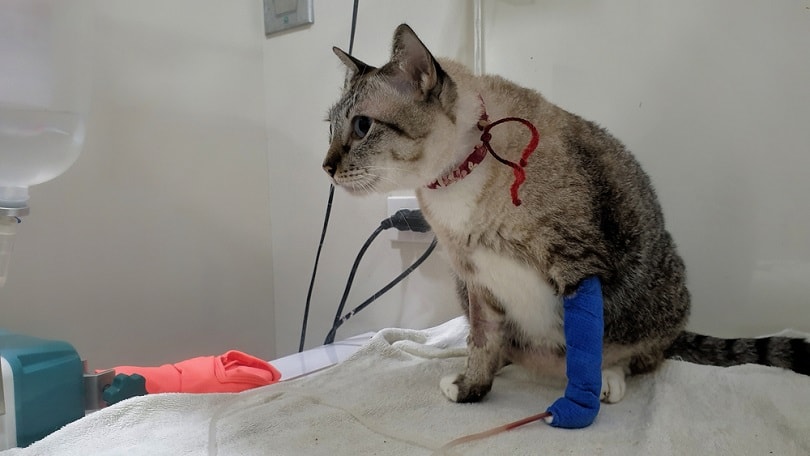

Can Feline Leukemia Be Transmitted Through…
Clothing?
The FeLV virus does not live very long outside the cat’s body, as few as a couple hours. Any surface, including clothing, will not transmit feline leukemia to other cats.
Water and Food Bowls?
Because the virus can be contracted through saliva, it’s possible to transmit feline leukemia through shared water or food bowls. It’s a good, preventative measure to keep separate cat water and food bowls in this situation. However, transmission like this doesn’t happen very often.
Since urine and feces carry the FeLV virus, the disease can be transmitted through shared litter boxes, but it is rare.
Fleas?
Another rare transmission can happen when fleas from a FeLV-infected cat bites a FeLV-negative cat. It’s way more likely that cats get the virus through other ways, but this can happen.

What Are the First Signs of Feline Leukemia?
Cats that become infected with feline leukemia may show no signs at first. They could seem perfectly healthy for weeks or months but gradually deteriorate in health. Some cats will go through phases of illness and health in a repetitive cycle.
- Weight loss
- Loss of appetite
- Lackluster coat of fur
- Pale gums
- Enlarged lymph nodes
- Fever
- Infection or inflammation of the mouth and gums
- Recurrent diarrhea
- Recurrent infections (skin, urinary, or respiratory)
- Anemia
- Reproductive failure
Other conditions can arise when an aggressive form of feline leukemia is present. These include cancers like lymphoma and lymphosarcoma, neurological diseases, infertility, and abortion.
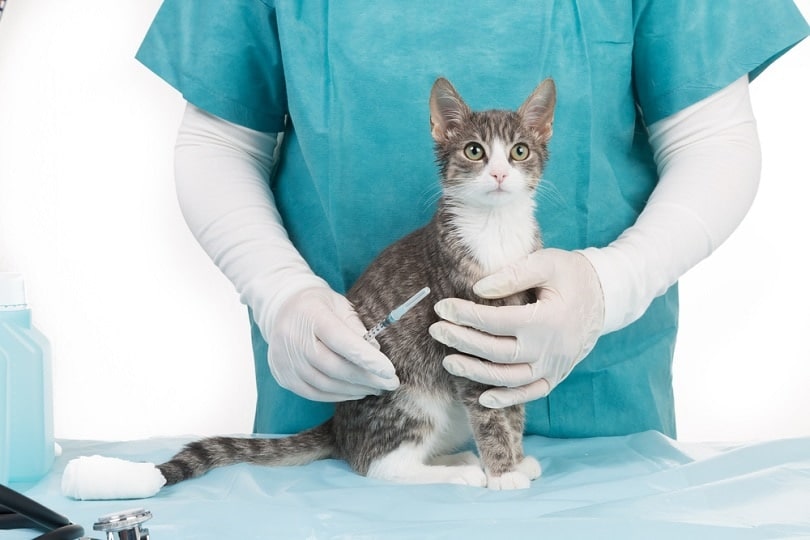
Tests for Feline Leukemia
If your cat seems unwell, take them to the vet. Once there, the vet will test your cat for feline leukemia. The diagnostic tests include the following.
Enzyme-Linked Immunosorbent Assay (ELISA) Test
The ELISA test is the most common test for feline leukemia. It’s a blood test that detects FeLV particles in the bloodstream in the early and late stages of the infection. It can provide immediate results in the veterinary office.
Immunofluorescent Antibody Assay (IFA) Test
A second common test is the IFA blood test, which is sent to a lab. This method tests your cat’s white blood cells for the infection. When the IFA test comes back positive, it usually indicates a more advanced stage of the infection and can mean that your cat will remain infected with FeLV for the rest of their life.

Outcome Possibilities of Feline Leukemia Infection
Your cat can have several outcomes of the feline leukemia virus infection, and each case is slightly different.
- Abortive Infections – Though these infections are rare, a cat’s immune system can sometimes create an effective defense against FeLV. This means the immune system manages to clear the infection.
- Regressive Infections – In every 10 of 100 infected cats, a regressive infection is present. The cat’s immune system is strong enough to take the virus out of the bloodstream, but it is still present in other parts of the body. In this state, the virus moves to the bone marrow. While it’s impossible to infect other cats in this state, the virus can resurface at some other point when the cat is contagious again.
- Progressive Infections – With a progressive FeLV infection, the virus is found in the cat’s bloodstream. The cat’s immune system has not developed resistance to it, so clinical signs of the virus are usually present, and they are always contagious to other cats.
Should Cats With Feline Leukemia Be Put Down?
Cats that get feline leukemia do not need to be put down. About 70% of cats that get feline leukemia can fight the virus and secondary infections with sustained care. Sometimes, in the case of abortive infections, they can even cure themselves.

How to Care for a Cat With Feline Leukemia
Though science has tried different blood treatments, there is no cure for feline leukemia. Cats with a progressive form of the virus must live with the disease their whole lives. However, that does not mean your cat will have an unhappy life from now on.
What’s most important for cats with feline leukemia is to stay healthy. This means they need to live stress free, eat a healthy diet, and have their toilet habits closely monitored. Owners must also keep up with all their vaccinations and vet checkups and maintain a low-stress lifestyle. Cats with this virus are more susceptible to secondary infections.
If a secondary condition is present, it can prove to be fatal. That is why it’s essential that a FeLV-positive cat stays as healthy as possible. Your vet will want to stay on top of secondary infections and may prescribe antibiotics or perform blood transfusions from time to time, depending on the severity of the condition.
Featured image credit: Kittima05, Shutterstock
